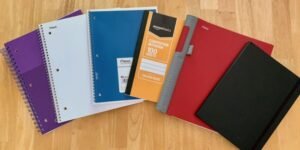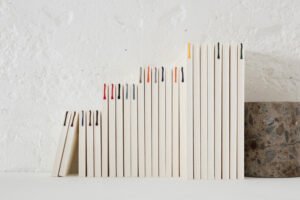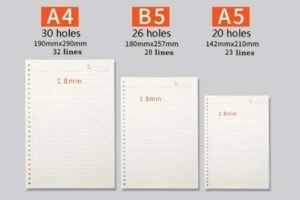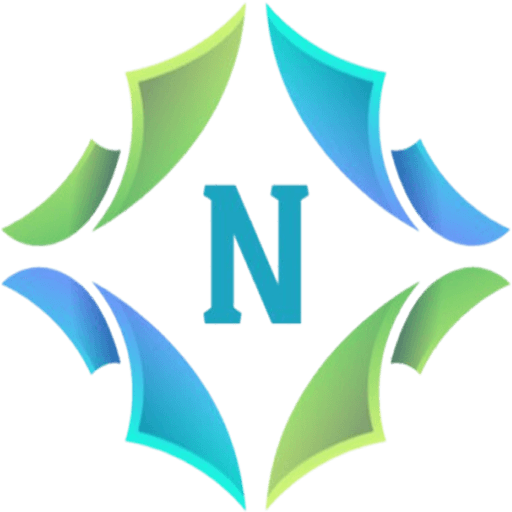
Every stationery buyer faces this challenge - how to balance quality and cost when budgeting for notebooks. Let's break it down.
To budget effectively, calculate three core costs: raw materials (paper/cover/binding), production complexity (custom shapes/printing), and order volume. Add 15-20% buffer for quality testing and logistics.
I've worked with over 200 brands since founding NotebookRing® in 2006. Through trial and error, we've identified five budget factors that separate successful projects from costly mistakes.
What costs are often overlooked in notebook budgeting?
Hidden costs sink budgets faster than visible ones. Let me show you the stealthy budget killers.
68% of first-time buyers forget these expenses: 1) Sample revision fees, 2) Minimum order surcharges, 3) Packaging safety certifications.
The hidden cost breakdown table
| Cost Category | Typical % of Budget | Common Oversight Example |
|---|---|---|
| Sample Adjustments | 5-8% | Changing paper weight after approval |
| Small Batch Fees | 10-15% | Ordering 300 units when MOQ is 500 |
| Compliance Testing | 3-5% | EU REACH certification for metal binders |
| Inventory Storage | 2-4% | Bonded warehouse fees for slow-moving SKUs |
Our production manager once found a client paying 22% extra for repeated color matching. Now we include 3 free Pantone corrections in all quotes.
How does binding method affect notebook costs?
Your binding choice impacts both upfront costs and long-term value. Let's compare apples to apples.
Sewn bindings cost 15-20% more than glue but last 3x longer. Spiral bindings offer medium pricing but enable 360° flipping - ideal for sketchbooks.
Cost vs durability analysis
-
Glue binding
- Initial cost: $0.17-$0.25/unit
- Best for: 50-100 page notebooks
- Watch for: Page shedding after 200+ openings
-
Metal coil
- Initial cost: $0.40-$0.60/unit
- Our patented seamless coils eliminate snagging
- Pro tip: Choose 304 stainless steel over plated iron
-
Binder system
- Initial cost: $1.20-$2.00/set
- Lifetime cost advantage: Replace only inner pages
- Case study: James Wong saved 32% using our modular binders
Why does paper choice make or break your budget?
Paper accounts for 40-60% of material costs. But cheaper isn't always better - let's explore smart compromises.
80gsm paper balances cost and usability. Go thinner for draft notebooks (70gsm), thicker for art journals (120gsm). Recycled paper now costs only 8% more than virgin pulp.
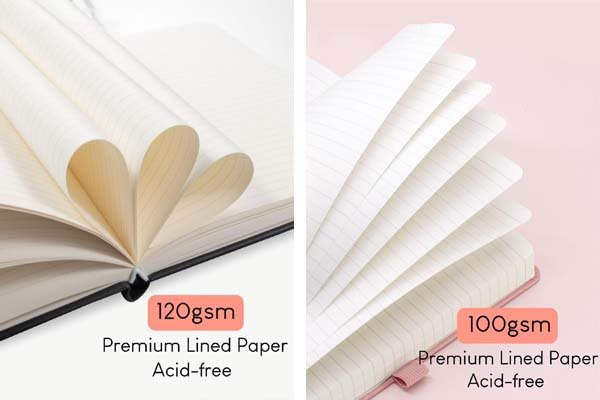
Paper cost comparison (per 1000 sheets)
| Type | Thickness | Cost | Best Use Case |
|---|---|---|---|
| Recycled | 80gsm | $18 | Eco-friendly journals |
| Tomogawa | 68gsm | $27 | Bible-thin planners |
| Sketch | 150gsm | $41 | Mixed media art books |
| Acid-Free | 100gsm | $23 | Archival notebooks |
Our German client Sarah Müller saved 14% using 85gsm FSC-certified paper instead of premium 100gsm stock. The secret? We adjusted ruling density to prevent bleed-through.
When should you invest in premium customization?
Custom features can increase costs by 30-200%. Here's how to prioritize upgrades that deliver ROI.
Invest in logo hot stamping (7-10% cost) and rounded corners (3-5%). Delay foil edges (15-20%) until sales volume justifies it.
Customization ROI case studies
-
Silicon Valley tech company
- Invested in: Laser-engraved metal binders (+$4.50/unit)
- Result: 73% employee retention of gift sets vs 41% for generic
-
Japanese stationery brand
- Skipped: Custom packaging (-$1.20/unit)
- Used savings on: Pre-cut dotted pages (+$0.80)
- Outcome: Became Rakuten's #3 bestseller
-
Our recommendation path
- Phase 1: Basic branding + functional upgrades
- Phase 2: Aesthetic enhancements at volume discounts
Why partner with professional manufacturers?
This is where NotebookRing® transforms your budgeting from guesswork to precision. Let me explain how we create cost certainty.
Our vertical production chain cuts 3-5 middlemen markups. Clients like Yuki Nakamura achieved 8mm thickness goals through patented binding tech.
Your budget advantage checklist
✅ Transparent pricing
- All-in quotes covering samples, compliance, logistics
- 100% cost breakdowns since 2006
✅ Cost-saving tech
- Seamless coils: 15% cheaper than German alternatives
- Soy ink: $0.03/page savings vs petroleum-based
✅ Risk reduction
- Free sample books with 20+ material swatches
- ISTA 3A certified drop testing
Last month, we helped a French brand cut per-unit costs by 19% through bulk paper sourcing - without compromising FSC certification. That's our promise: premium quality, logical budgeting.
Conclusion
Smart notebook budgeting balances visible costs and hidden factors. Choose partners offering technical expertise and supply chain transparency.
Ready to optimize your notebook budget?
At NotebookRing®, we've helped 200+ brands since 2006 create cost-effective, premium notebooks. Our 15,000㎡ FSC-certified factory offers:
- 100-unit sample orders with 3 free revisions
- 500-unit MOQs (30% lower than industry average)
- Carbon Trust-certified green production
Request your free sample kit today: info@notebookring.com

